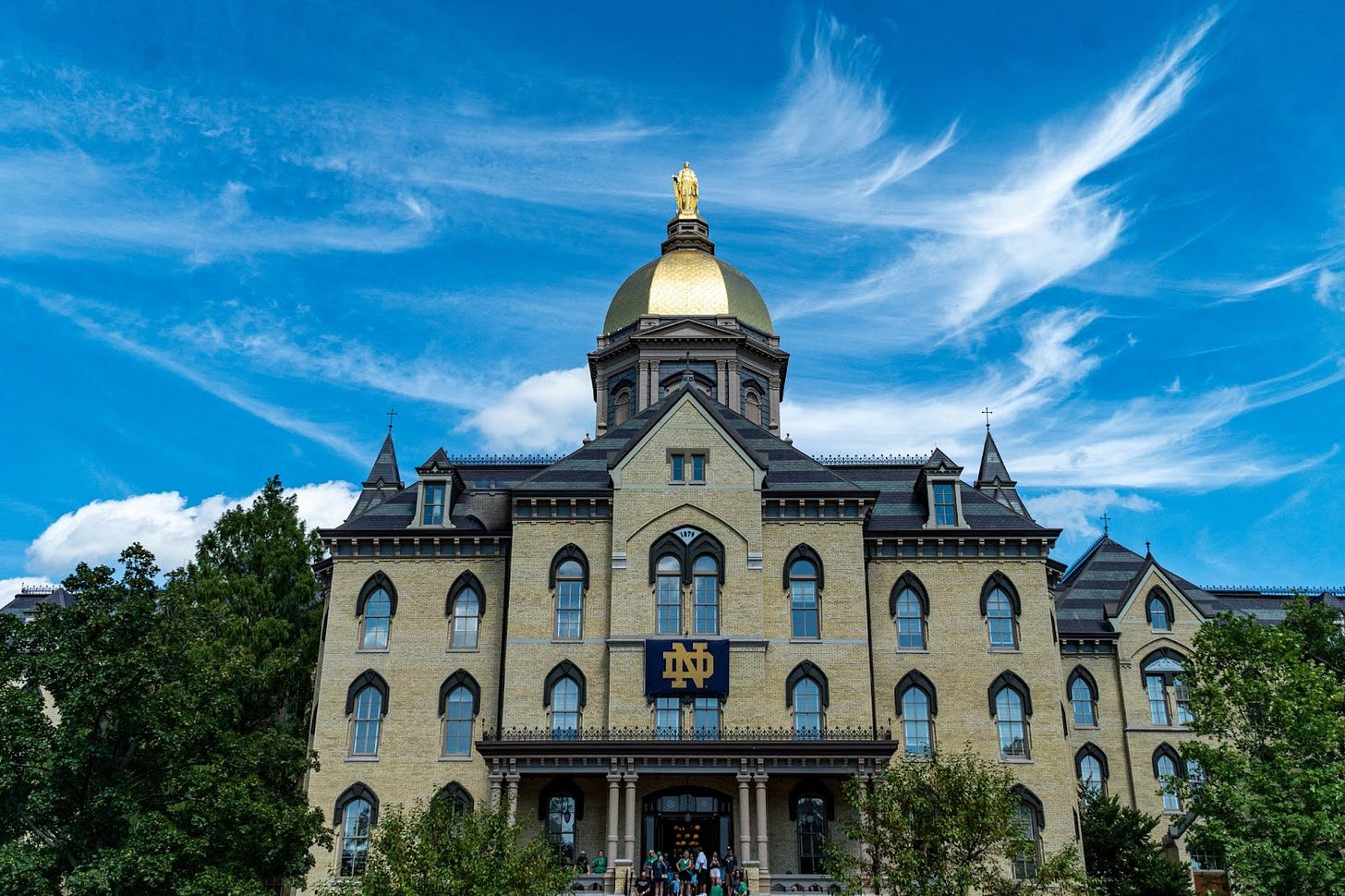This week marks Notre Dame’s inauguration of its 18th president, Fr. Robert Dowd, CSC.
Dowd is taking the helm at a school that has, over decades, grown to become a preeminent research university, with strong finances, robust academics, and an impressive sports program — it is an institution w…

